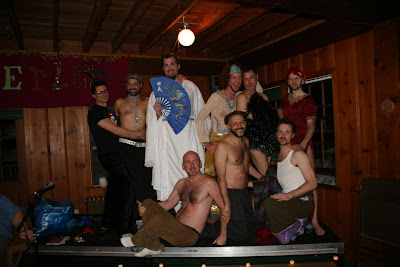KATHMANDU, March 24 - Life's pretty rough on gays and lesbians, more so while travelling. Even on a simple occasion like eating out, more often than not they are subjected to discrimination. For instance, waiters get nosy about their appearance and may even ask them about their sexual identity. Fortunately, thanks to Nepal's tourism and service industry, foreign gays and lesbians do not have to suffer like in other countries. In a break from the traditional mindset, some of the country's tour operators have now geared up to lure foreign gay and lesbian tourists. Earlier, this kind of travel used to be closeted. A number of restaurants, discos and hotels have been established in the country that cater to gay and lesbian couples. Employees in these establishments have been trained to behave better so that visiting couples get the respect they are looking for. Popular travel website utopia-asia.com has listed these various places where foreign gays and lesbians are treated differently. However, proprietors of these venues rarely open up regarding the service they provide. Another travel website -- www.visitnepal2011.com -- has come to the fore calling gays and lesbians to visit Nepal. This website has posted a separate section for gay/lesbian travel but does not disclose its travel features. Notably, according to Lonely Planet's website, some foreign gays and lesbians have been choosing the country as the most romantic rendezvous. Owing to the country's deep-rooted culture of respecting guests, scores of foreign gays and lesbians travel in the country every year without any hindrance, say travel operators. But this is a subject rarely discussed. "It is something that foreign guests are always treated in a good manner," says Jyoti Adhikari, President of Trekking Agencies Association of Nepal, an umbrella organisation of more than 700 travel agencies in the country. "Compared to other western countries, foreign gays and lesbians are not discriminated against here." Adhikari admits that a large number of travellers have been visiting the country since years and no case of discrimination has come to the fore. "Some restaurants and hotels in Kathmandu offer good treatment to these couples," he informs. Likewise, Sunil Babu Pant, a lawmaker and president of Blue Diamond Society, an organisation that advocates the rights of gays and lesbians, also admits these tourists have never been discriminated in the country whereas Nepalis from the same community are always prone to harsh treatment. "With travel package for foreign gays and lesbians, local sexual minorities can get employment opportunity in the tourism sector," says Pant. "The government itself should take initiative in this regard." The Supreme Court in a landmark verdict recently said gays and lesbians were "natural" people. It directed the government to remove all discrimination against the community and ensure for them the rights enjoyed by all other citizens.
For more information visit:
http://gayswithoutborders.wordpress.com/2009/03/26/nepal-kathmandu-luring-gays-as-tourism-destination/










